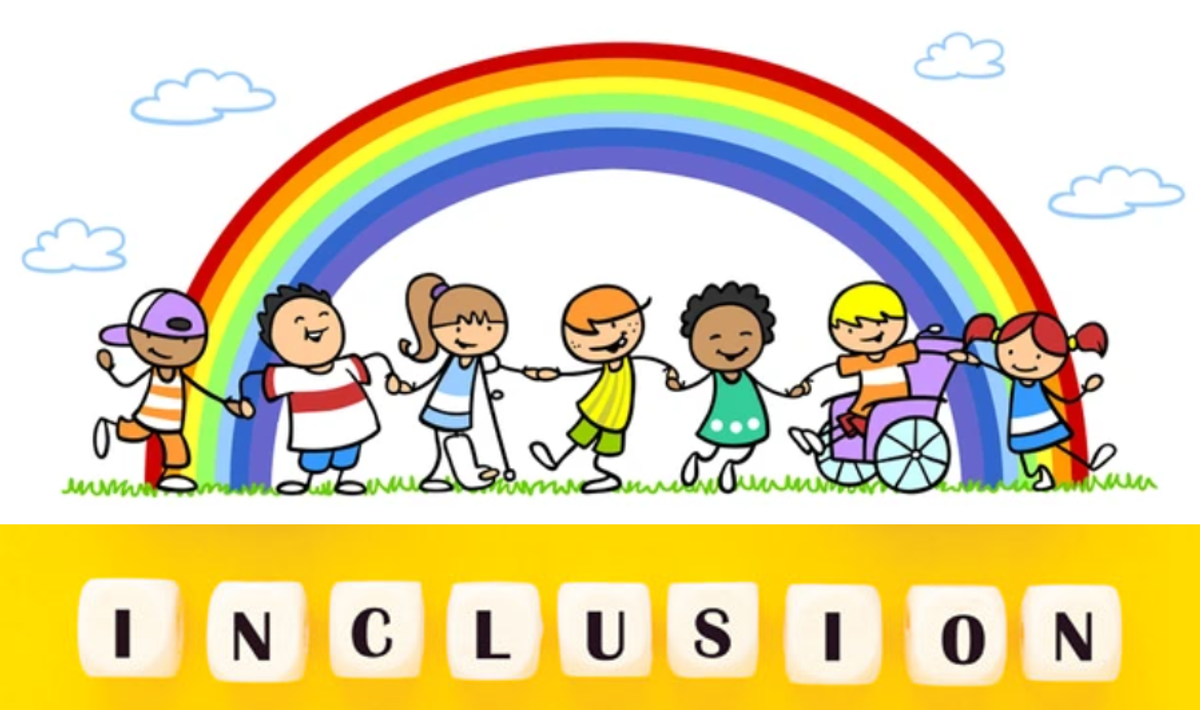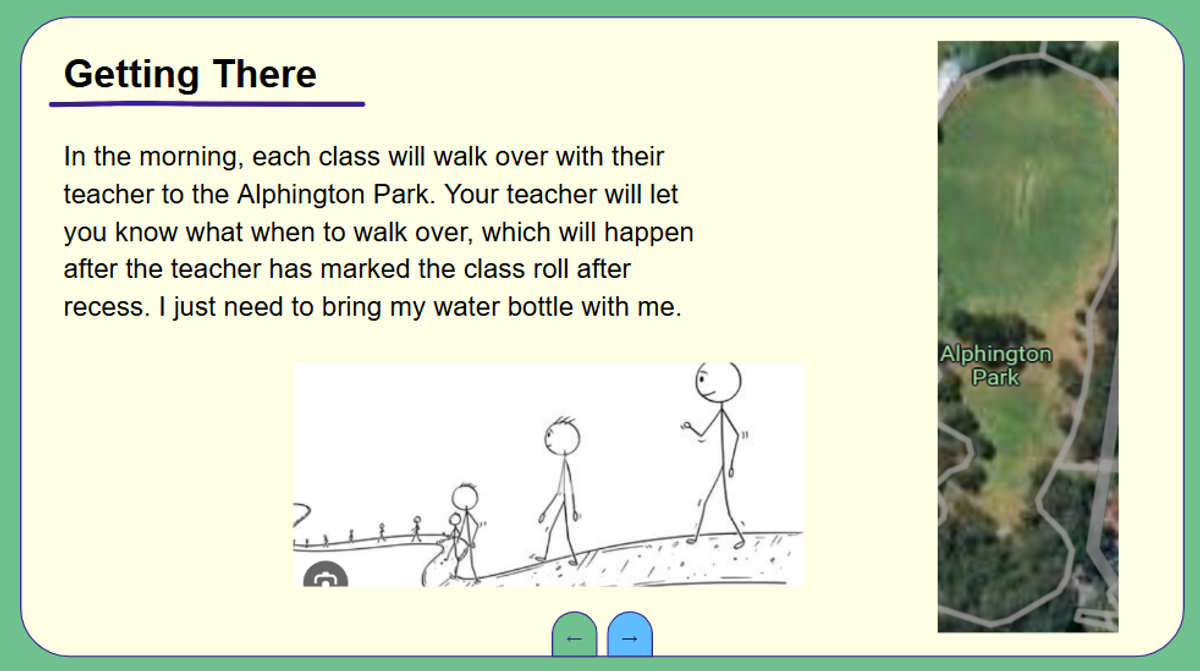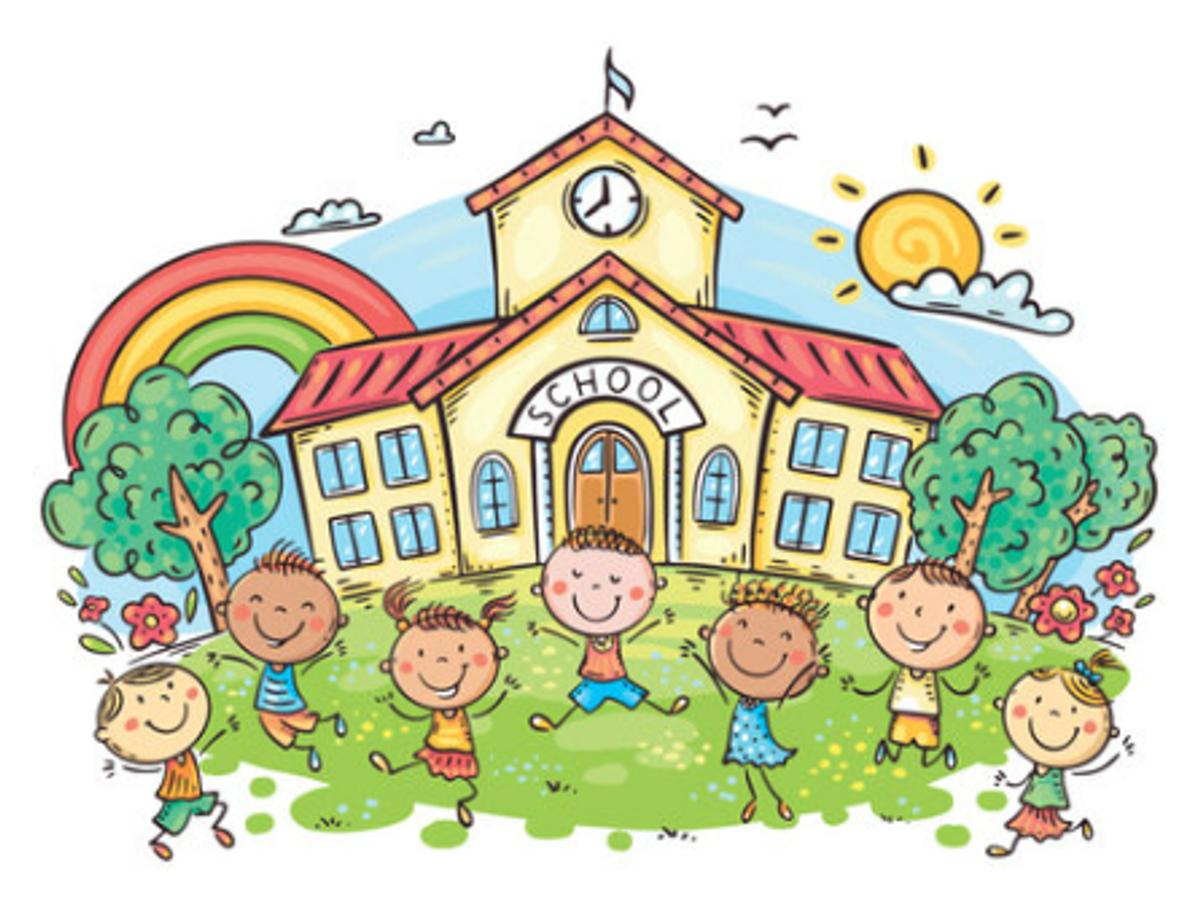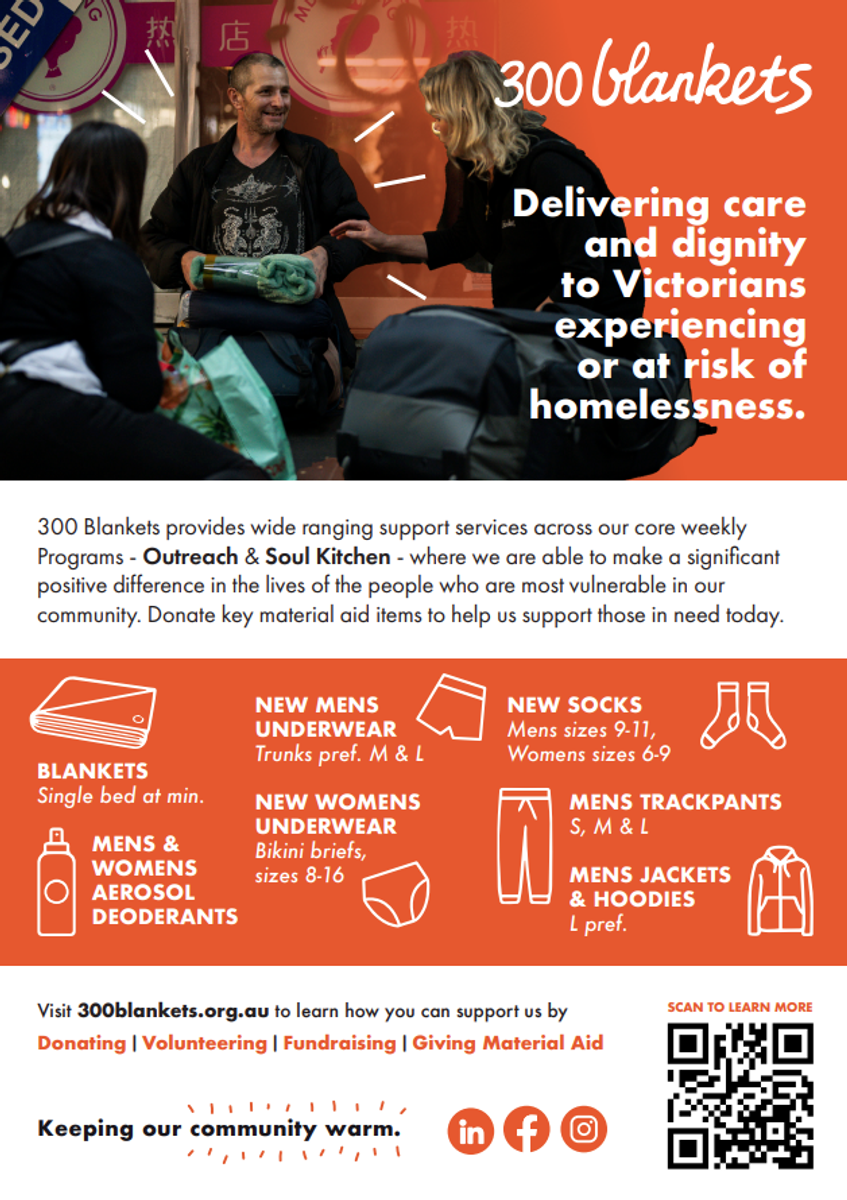Classroom News

Understanding Social Stories: Supporting Your Child’s Social Learning
At Alphington Primary School, our Disability Inclusion Team is committed to supporting every child’s learning and social development. One tool we often use to help children navigate social situations is called a Social Story.
What is a Social Story?
A Social Story is a simple, clear, and personalised story that helps children understand social situations, expectations, or changes they may encounter. These stories break down complex social cues into easy-to-understand language and visuals, guiding children on what to expect and how to respond.
Why use Social Stories?
Social Stories provide a safe way to prepare students for new experiences—like making friends, understanding classroom routines, or dealing with changes in the day. Additionally, we use group Social Stories for major school events such as the Sporting Carnivals, camps and concerts.
How do Social Stories help?
- Explain social rules or behaviours step-by-step
- Reduce anxiety by preparing children for upcoming events
- Encourage positive social skills and confidence
- Support independence in everyday situations
Kind regards,
The Disability Inclusion Team
SAVE THE DATE!
Foundation & Year 1 School Concert – A Day in the Life (of an Alphington Primary School student) - Wednesday, 10th September, 7pm
Prep and Year 1 students are excitedly rehearsing this Term for their School Concert, A Day in the Life (of an Alphington Primary School student), to be held at the Renaissance Theatre at Kew High School on Wednesday, 10th September at 7pm.
The concert is truly a celebration of our vibrant Arts learning this year in Music, Drama, Dance and Visual Arts, and the students cannot wait to share this with you all! The theme for our Concert takes us through a typical day in the life of an APS student, from waking up in the morning, through the school day, to tiredly creeping to bed in the evening. Students have been involved in all aspects of the performance including script writing, choreography, song choice and costume design.
Further details for parents will follow via a Compass post and updates in the newsletter later in the term. Tickets will also be on sale closer to the date.
Please direct any enquiries to me at Christy.Fulcher@education.vic.gov.au
If you know that your child will be absent on this day due to holidays or other circumstances, please send me a quick message to assist in planning.
Looking forward to seeing you all there!
Christy Fulcher - Performing Arts Teacher
Year 6 News APS Migration Stories
Our Year 6 students are currently investigating migration to Australia as part of our Term 3 History focus. Last week, we went to the Immigration Museum and discovered the stories of migrants who have come form all parts of the world to make Australia home. In class, we have also been finding out about our own families and their migration stories. These have been amazing, and we are keen to find out more.
Attached is a link to a Google Form that we are asking members of the APS community to complete. This data will then be analysed by Year 6 students to help build a profile of migration stories at APS. So, if you have a tale to tell, we would love you to share it.
Thank you
Alan & Megan - Year 6 Teachers
Performing Arts News!
This week, as part of the senior Performing Arts program, the year 4-6 students had the pleasure of welcoming the Kew High Jazz and Stage Band to perform a concert. It was great to see the familiar faces of some past students who came back to perform. The bands demonstrated the Tambre (tone) a variety of instruments and shared music from a range of genres, including Jazz and Rumba. We are grateful to Kew High for bringing these bands to APS and providing this opportunity for our students.
Material Aid Drive for 300 Blankets
Friday 8th August - Friday 22nd August.
If possible, please donate the items above.
Collection tubs will be in the Main Office
Thank You
From The Community Outreach Action Team
When your child brings you a school problem: To intervene or not to intervene?
Australian Child Psychologist, Michael Hawton presents.....
When your child brings you a school problem: To intervene or not to intervene?
By Michael Hawton, Child Psychologist (MAPS) and Parentshop founder.
Every parent knows this scenario: your child comes home upset about a school problem—being excluded from a group project, receiving an unfair detention, or friendship troubles. Their distress is genuine, and your instinct is to protect and fix things. But should you?
School leaders across Australia report a significant increase in parental interventions over seemingly minor issues. This isn't just helicopter parenting—it reflects our heightened awareness of potential problems and anxiety about our children's wellbeing. However, this vigilance may inadvertently undermine our children's resilience and problem-solving abilities.
Research by Dr. Eli Lebowitz and his colleagues at Yale Child Study Center has shed fascinating light on what happens when parents consistently step in to alleviate their children's distress. This behaviour, known as "accommodation," involves changing our own actions to prevent or reduce our child's anxiety or discomfort.[1]
When parents immediately contact schools about conflicts, request teacher changes, or remove children from uncomfortable situations, we unintentionally communicate: "This situation is too difficult for you to handle." Research shows this can inadvertently maintain and increase childhood anxiety over time[2].
The challenge is being supportive without accommodating. Instead of saying, "Don't worry, I'll speak to your teacher about that detention," try: "That sounds frustrating. What do you think your options might be?" This acknowledges their distress while empowering them to develop coping strategies.
A 5-step framework for decision-making for parents
1. Assess safety: If your child faces physical danger or serious psychological harm (persistent bullying, discrimination), immediate intervention is appropriate.
2. Apply the "what if" test: Ask yourself what would happen if you didn't intervene. Often, your child might feel uncomfortable but isn't in genuine danger.
3. Consider the learning opportunity: Could this situation help develop important life skills like disappointment management, conflict resolution, or self-advocacy?
4. Check your emotions: Approach the situation with "caring detachment"—caring for your child's distress without becoming distressed yourself.
5. Evaluate patterns: Is this part of a recurring pattern where you consistently solve problems your child could handle?
When choosing not to intervene directly, you're providing something valuable: the opportunity to develop coping capacity. Here's how to support effectively:
- Listen without immediately problem-solving: Sometimes children need to be heard more than they need problems fixed.
- Ask curious questions: "What do you think might work?" helps children think broadly about options.
- Acknowledge feelings: "I can see this is bothering you" validates their experience without agreeing intervention is necessary.
- Share confidence: "This is tricky, but I believe you can work through it" communicates faith in their capabilities.
Sometimes working with schools is essential. The key is involving your child in the process: "I think this warrants a conversation with your teacher. Would you like to speak to them first, or shall we arrange a meeting together?" This maintains your child's agency while providing necessary support.
Parenting isn't about ensuring children never face difficulties—it's about preparing them to navigate challenges with confidence. Every time we resist immediately fixing a problem our child could handle, we make a deposit in their confidence bank.
The most loving thing we can do is believe in our children's capacity to cope, even when they don't yet believe in it themselves. By supporting without accommodating, we help them develop the resilience they'll need throughout life.
To learn more about supporting your child's emotional development and building resilience, explore our resources at Parentshop - https://www.parentshop.com.au/for-parents/.
Michael Hawton is founder of Parentshop, providing education and resources for parents and industry professionals working with children. He has authored two books on child behaviour management: Talk Less Listen More and Engaging Adolescents. You can find more information, including his books and self-paced online parenting courses at https://www.parentshop.com.au/parent-courses/








